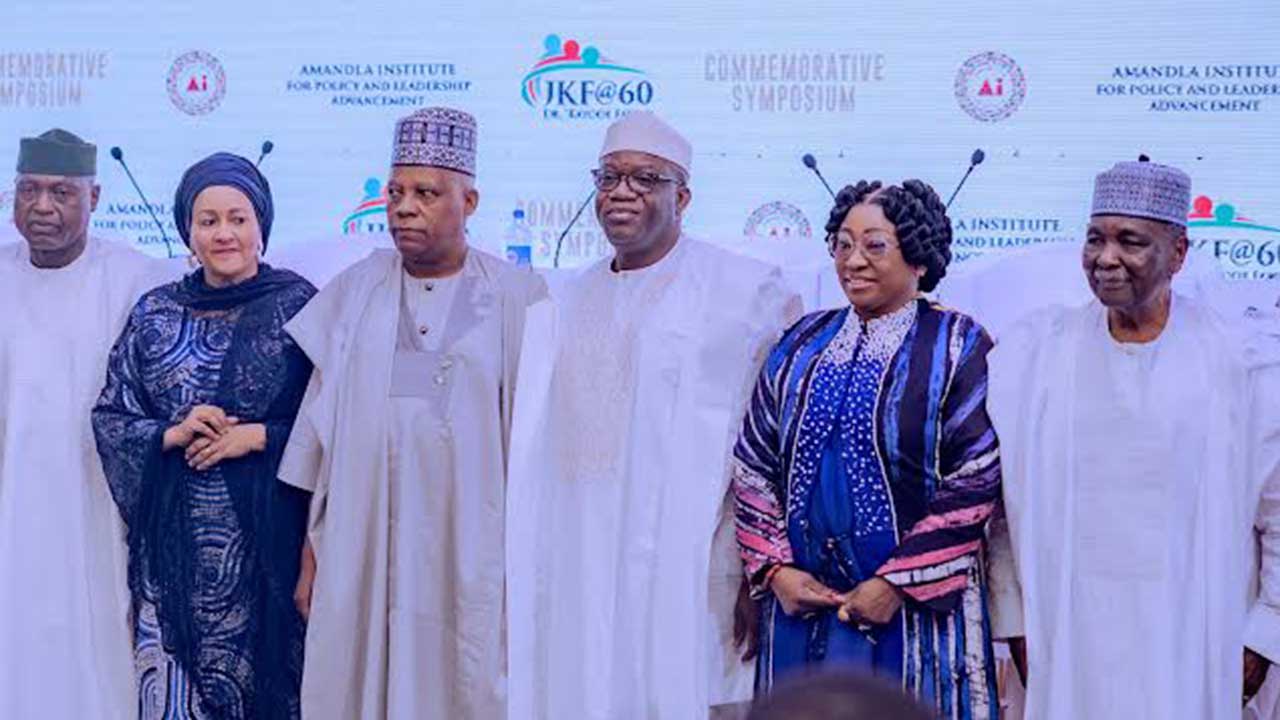
• President warns African leaders against dependence on foreign plans
President Bola Tinubu has called on those entrusted with leadership positions in Africa to translate ideas into tangible actions that would impact the well-being of Africans.
Also, former Head of State, Gen Yakubu Gowon (rtd), who spoke in the same vein, remarked that the conversation around pan-Africanism needed to shift towards grounded, locally relevant solutions that directly address the unique challenges within African nations.
Also, the Deputy Secretary General of the United Nations (UN), Ms Amina Mohammed, who underlined the need for dialogue, noted that “it behoves those in leadership positions in Africa to create the enabling environment for the upcoming generation” to reposition the continent for sustainable development.
The trio spoke, yesterday, at the Dr Kayode Fayemi Commemorative Symposium to mark his 60th birthday and the launch of the Amandla Policy and Leadership Institute, with the theme ‘Renewing the Pan-African Ideal for the Changing Times: The Policy and Leadership Challenges and Opportunities’ in Abuja.
At the event, Tinubu charged African leaders to stop clinging to the old habit of depending on foreign plans, saying the continent was in dire need of leaders, who wield policy as a surgical blade instead of a slogan.
Represented by the Vice President, Kashim Shettima, the President argued that the answers to most complex problems bedevilling Africa were no longer elusive; as “they are generated in mere seconds,” stressing the need for a generation of Africans, who recognise that pan-Africanism must be rooted in actionable sovereignty.
Also, urging the leaders to rise above inertia and ensure that ideas do not remain ink on paper, buried in symposia and policy documents, Tinubu said it was unfortunate that for centuries, Africa was plundered for its resources.
“For these centuries, we were mostly prophets of lamentation and despair. Today, we face an even worse risk of being plundered for our potential. This is so because the algorithms shaping global power, the Artificial Intelligence (AI) rewriting economies and the policies dictating climate futures are being coded in distant capitals while we linger in debates over yesterday. The post-idea world forgives no such hesitation,” he said.
According to the President, nature rewards only those who are quick to translate their ideas into actions or compete with the best ideologues and scientists from other parts of the world.
He heaped praises on Fayemi’s legacy, from pro-democracy activism to public administration, that teaches that leadership in this era demands more than ideation but requires the stamina to execute policies and programmes for the well-being of the citizenry.
Gowon argued that by fostering solutions from within, using innovation and indigenous knowledge, Africa could chart a path that reflects its heritage while embracing a modern future.
He stressed, among other recommendations, that African religions and value systems would continue to play an essential role in shaping the continent’s identity, adding that the systems, rooted in spirituality, communalism, respect for nature and social ethics, provide valuable frameworks for promoting harmony and addressing contemporary challenges.
Mohammed harped on the need to allow the citizenry to freely express their views without hindering the country from getting the leadership it deserves.
Acknowledging developmental gaps that cannot be filled by the present generation of leaders, she stressed the need for those in leadership positions to inspire their followers to lay the foundation for the next generation.
Tinubu also lamented “the tragedy of our time” whereby African leaders do not only confine themselves to foreign blueprints but have also refused to emancipate themselves from client-state mentalities and governance by hashtag activism.
He regretted that “for too long, leaders in Africa have outsourced their thinking, relying on institutions and ideologies that treat countries on the continent as consumers, not creators,” just as he insisted that the youth must be empowered to innovate in tech hubs across the continent.






